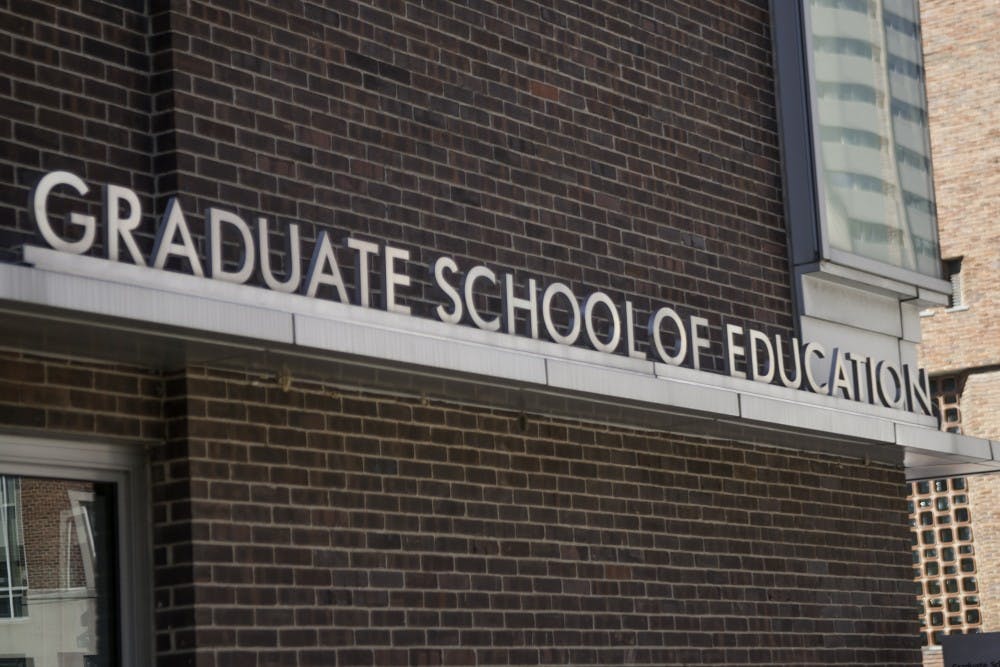
The University’s Graduate School of Education is aiding the Commission on Universal Pre-Kindergarten in research and policy.
Credit: Yosef RobelePhiladelphia is demanding implementation of universal preschool to every 3- and 4-year old, regardless of their need or neighborhood. Mayor Jim Kenney has made strong campaign promises to make universal preschool a priority and now the city is trying to bring these promises to fruition.
In May 2015, Philadelphians voted overwhelmingly — with an 80 percent vote — to create the Philadelphia Commission on Universal Pre-Kindergarten. The Commission’s goal is to propose a pre-K program that provides quality, affordable and accessible services for three- and four-year-old children throughout Philadelphia.
In February, the Commission published a draft of their recommendations to implement universal pre-K. One of their suggestions was to obtain funding from multiple sources including federal Head Start, state-funded Pre-K Counts and local private funding.
While there is no single representative estimate for the cost of quality preschool in Philadelphia, the Commission has found that the average cost would be $13,000 per preschool child. This would provide quality care for eight hours a day and 260 days per year.
As of now, the city has $60 million in state funding for the preschool program and about 14,000 of the 42,500 — one-third — of Philadelphia’s three- and four-year-old children have access to affordable quality pre-K.
The Commission has asked the Penn Child Research Center, which includes Whitney LeBoeuf, research associate for the Graduate School of Education, to help them prioritize their funds. During an interview with Knowledge @ Wharton Business Radio, LeBoeuf explained Penn Child Research Center’s work with the pre-K commission.
“We at the Penn Child Research Center have a whole wealth of research that shows some really big risk factors in early childhood,” LeBoeuf said. “There are a whole host of experiences that greatly determine where kids are in their educational experiences later.”
Some of the risk factors include lead exposure, child maltreatment, birth risks and low-maternal education.
LeBoeuf also explained the use of big data in order to show where children with these high risk factors are living in Philadelphia. While there is only about one-sixth of the necessary funding, this information on early childhood risk factors can be used to to better serve these children.
“We can find pockets of high concentrations,” LeBoeuf said. “Up to 50 percent of kids have two or more of these risk factors. They’ve been using that in their draft plan to figure out where they’re going to distribute these resources.”
A study by professors in GSE, including LeBoeuf, has found that each additional risk factor lowered a child’s chance of reading proficiency, classroom engagement and attendance in third grade by 30 to 50 percent.
Mayor Kenney is promoting a soda tax that could achieve universal pre-K, jobs and development projects with about $400 million over five years. The three-cents-per-ounce soda tax would apply to any beverage with added sugar, including sports drinks and sweetened teas.
Children who attend high-quality programs are less likely to be held back a grade, less likely to need special education and more likely to graduate from high school, according to a report by the PEW Charitable Trusts. They also have higher earnings as adults and are less likely to become dependent on welfare or involved with law enforcement.
The Daily Pennsylvanian is an independent, student-run newspaper. Please consider making a donation to support the coverage that shapes the University. Your generosity ensures a future of strong journalism at Penn.
DonatePlease note All comments are eligible for publication in The Daily Pennsylvanian.




